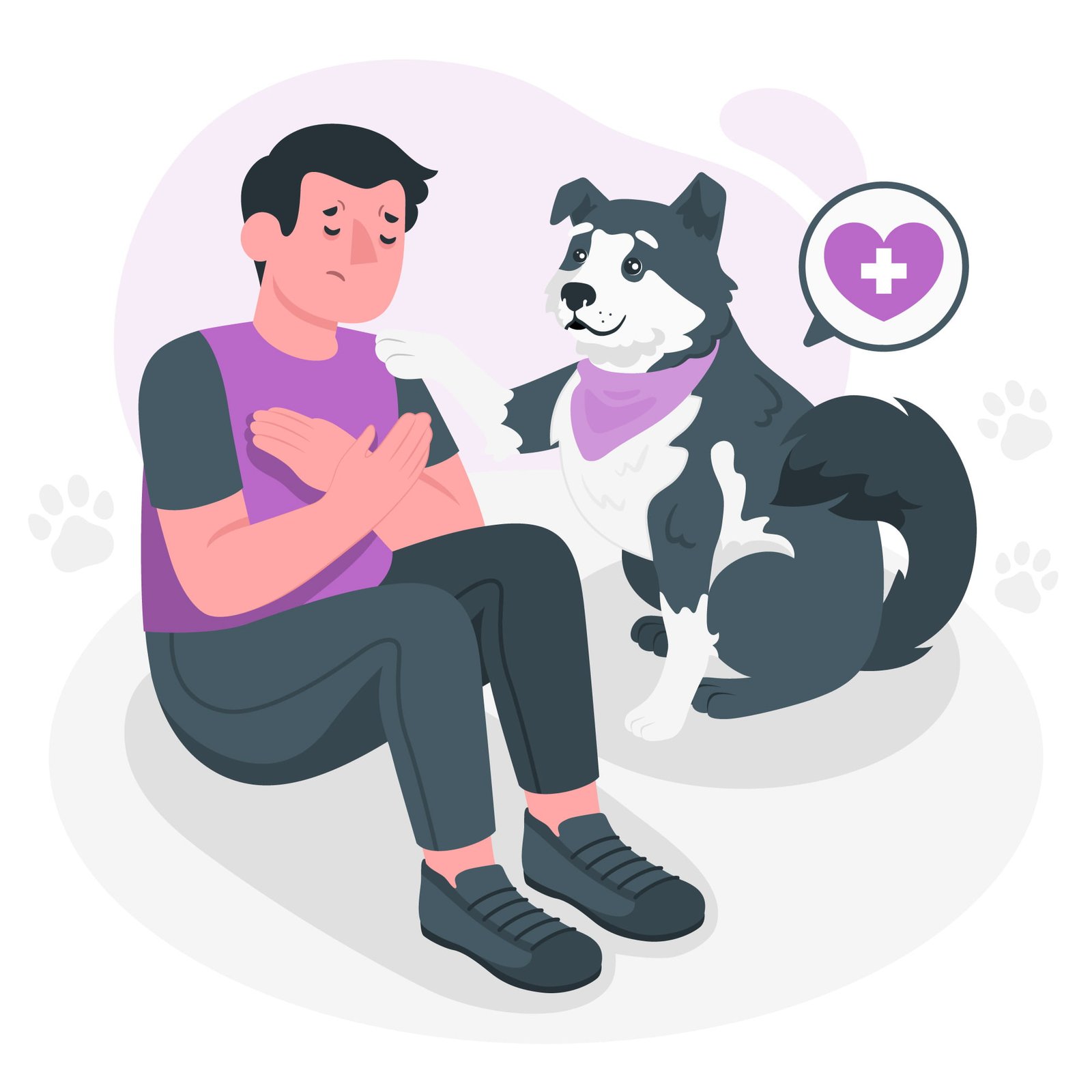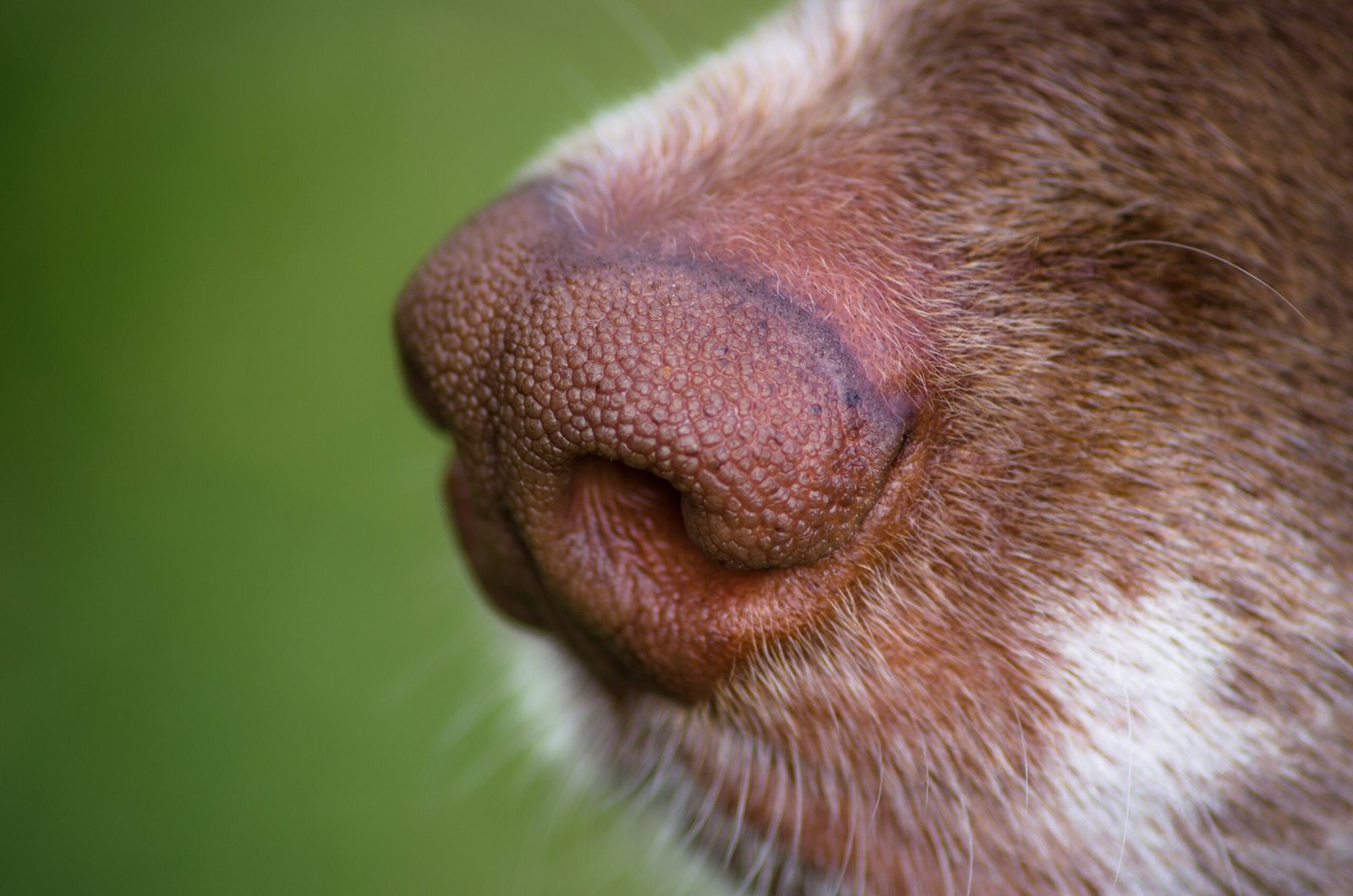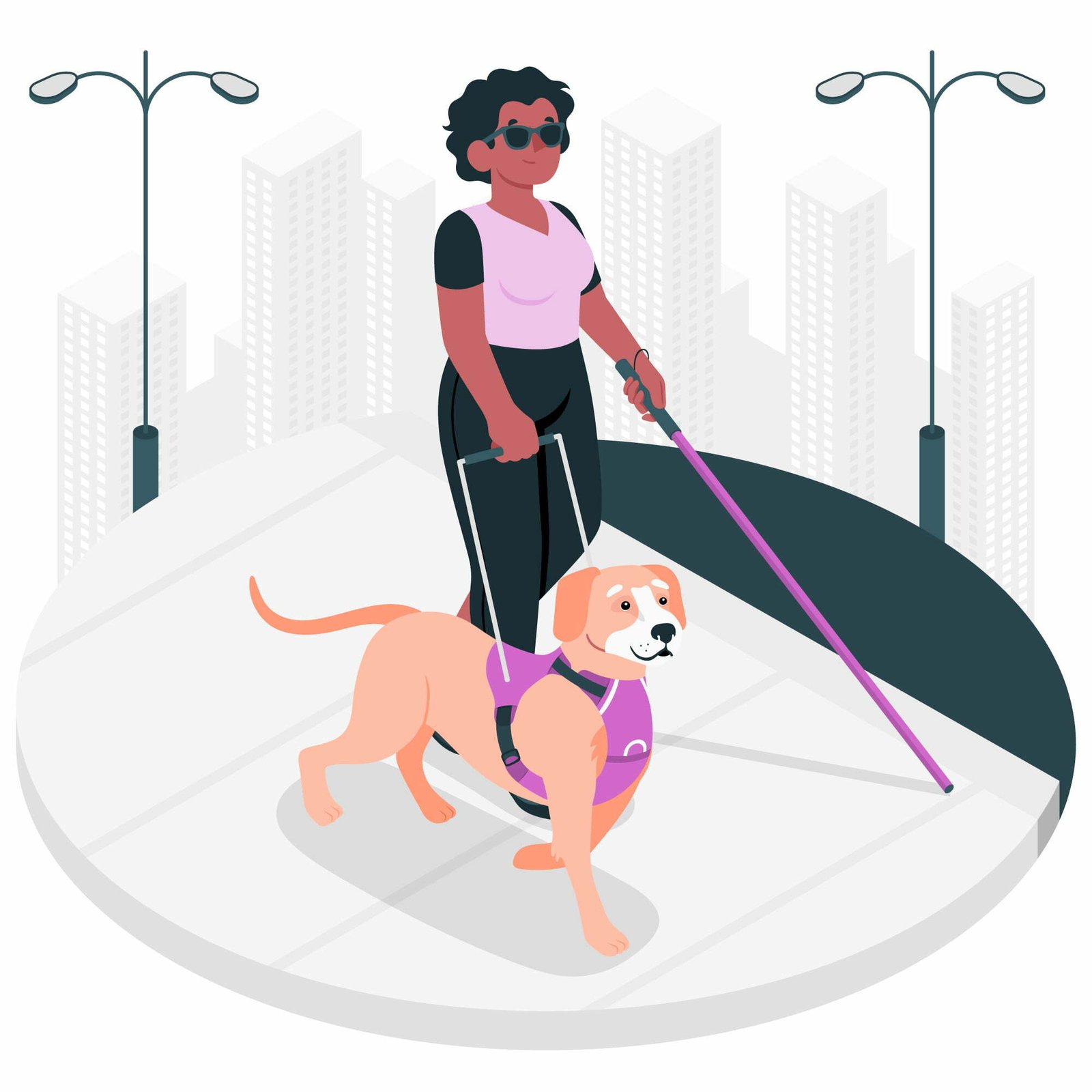Beyond companionship, these remarkable animals possess a unique and extraordinary ability: the detection of diseases and health conditions in humans. In this article we will show you how dogs detect diseases.

WORLD OF DOG MEDICAL DETECTION
Dogs have long been cherished as loyal companions, offering unconditional love and support to their human counterparts. In this comprehensive guide, we will explore how dogs detect diseases and health conditions, the specific ailments they can identify, and the process of training a dog to become a valuable service companion for individuals with chronic health conditions.
Dogs as healthcare professionals
In recent years, the field of medical detection dogs has gained significant attention, showcasing the incredible potential of these four-legged friends in improving healthcare outcomes. Explore more how dogs detect diseases and health condition! Whether you’re a dog enthusiast, someone with a chronic condition, or a healthcare professional, this article sheds light on the remarkable world of dog medical detection.
UNDERSTANDING CANINE OLFACTION: A SUPERPOWER FOR DISEASE DETECTION
Dogs possess an olfactory sense far superior to that of humans. Their noses are equipped with approximately 300 million scent receptors, compared to the mere 5-6 million in humans. This remarkable olfactory capacity allows dogs to detect even the faintest of scents, making them ideal candidates for disease detection.
How Dogs Detect Diseases
- Scent Markers: Many diseases and health conditions are associated with specific scent markers. These markers can be present in a person’s breath, urine, sweat, or even in certain bodily fluids. Dogs can detect these markers even when they are present in extremely low concentrations.
- Behavioral Changes: In some cases, dogs can detect diseases by observing changes in a person’s behavior or body language. For example, a diabetic person experiencing a drop in blood sugar levels may exhibit specific behaviors that a trained dog can recognize.
- Biochemical Changes: Some diseases cause subtle biochemical changes in the body, altering a person’s odor. Dogs can pick up on these changes through their acute sense of smell.

CONDITIONS THAT DOGS CAN DETECT
Medical detection dogs have demonstrated their ability to identify a wide range of diseases and health conditions.
Diseases that medical dogs will detect if trained
- Diabetes: Dogs can detect changes in blood sugar levels through scent and behavioral cues. They are trained to alert their owners when their glucose levels become dangerously high or low, helping prevent diabetic emergencies.
- Epilepsy: Certain dogs can sense the onset of seizures in people with epilepsy. They may provide an alert, allowing the person to find a safe place before the seizure occurs.
- Cancer: Medical detection dogs have shown promise in detecting various types of cancer, including lung, breast, and ovarian cancer. They can identify specific cancer-associated scents in a person’s breath or bodily fluids.
- Parkinson’s Disease: People with Parkinson’s disease often experience changes in their body odor. Some dogs can be trained to detect these odor changes, potentially assisting in early diagnosis.
- Migraines: For individuals prone to migraines, dogs can sometimes detect subtle changes in their owners’ scent or behavior before a migraine attack, allowing them to take preventive measures.
- Allergies: Allergy detection dogs can identify allergens such as peanuts or gluten in food products by scent, helping individuals with severe allergies avoid potential risks.

The Process of Training a Medical Detection Dog
Training a dog to become a medical detection dog is a meticulous and specialized process that requires expertise, patience, and dedication.
Here are the key steps involved:
- Selection of the Right Candidate: Not all dogs are suitable for medical detection work. The ideal candidate should have a strong sense of smell, a calm and trainable temperament, and the ability to focus on tasks for extended periods.
- Basic Obedience Training: Before specialized training begins, the dog undergoes basic obedience training to ensure it responds to commands reliably. This includes basic commands such as: “come,” “stay,” and “sit.”
- Scent Association: In this phase, the dog is introduced to the scent associated with the target disease or condition. For example, a diabetes alert dog is exposed to the scent of low or high blood sugar levels.
- Positive Reinforcement: Training relies heavily on positive reinforcement. When the dog correctly identifies the target scent or exhibits the desired behavior, it is rewarded with treats, praise, or playtime.
- Alert Training: The dog is trained to provide a specific alert signal when it detects the target scent. This could be a pawing motion, barking, or another predetermined signal.
- Gradual Complexity: Training becomes progressively more challenging, with the dog exposed to a range of distractions and scenarios to ensure it can perform reliably in real-world situations.
- Handler Training: The dog’s handler also undergoes training to understand and respond to the dog’s alerts appropriately. This partnership is crucial for the dog’s effectiveness in assisting individuals with chronic health conditions.
Benefits of Medical Detection Dogs for Chronic Health Conditions
The presence of a well-trained medical detection dog can significantly improve the quality of life for individuals with chronic health conditions.
Here are some key benefits:
- Early Detection: Dogs can often detect health issues before visible symptoms manifest, allowing for early intervention and potentially life-saving actions.
- Emotional Support: Medical detection dogs provide not only practical assistance but also emotional support and companionship for individuals facing health challenges.
- Increased Independence: These dogs empower individuals to lead more independent lives by providing a safety net in emergencies.
- Enhanced Confidence: Knowing that a faithful companion is by their side, individuals with chronic health conditions often experience increased confidence and peace of mind.

HOW TO OBTAIN A MEDICAL DETECTION DOG?
Steps to make to get a trained dogs that detect diseases
If you or someone you know has a chronic health condition and would benefit from a medical detection dog, consider the following steps:
- Assess the Need: Consult with a healthcare professional to determine if a medical detection dog is appropriate for managing the specific condition.
- Research Organizations: Look for reputable organizations that specialize in training medical detection dogs for the target condition. These organizations often have wait-lists and specific eligibility criteria.
- Evaluate Costs: Medical detection dogs can be costly to acquire and maintain. Research funding options, grants, and assistance programs that may help cover the expenses.
- Prepare for Responsibility: Owning a medical detection dog is a significant responsibility. Ensure you are ready to commit to the care and training required.
Dog Heroes in Healthcare
Dogs have an extraordinary ability to detect diseases and health conditions, making them invaluable allies in healthcare. From diabetes to cancer, epilepsy, and more, these remarkable animals can offer early detection and emotional support to individuals facing chronic health challenges.
Training a medical detection dog is a meticulous process that requires patience and expertise, but the rewards are immeasurable. For those living with chronic health conditions, a well-trained medical detection dog can mean the difference between independence and dependency. Early intervention, crisis and most importantly, a faithful companion offering unwavering support.
Final Thoughts About How Dogs Detect Diseases
As the field of medical detection dogs continues to advance, we can look forward to even more incredible stories of canine heroes. They saving lives improve the well-being of people around the world. The bond between humans and dogs has never been more evident or more vital in our journey toward better health. Medical detection dogs are true heroes in healthcare!
Using their remarkable olfactory abilities to detect diseases and health conditions that would otherwise go unnoticed. These dogs offer not only early detection but also invaluable emotional support to individuals with chronic health conditions.
Training a medical detection dog is a precise and dedicated process, but the benefits for those in need are immeasurable. These canine heroes remind us of the unwavering bond between humans and dogs! We praise the extraordinary potential for positive change they bring to the world of healthcare.
Read more on this topic about the detection dogs!









